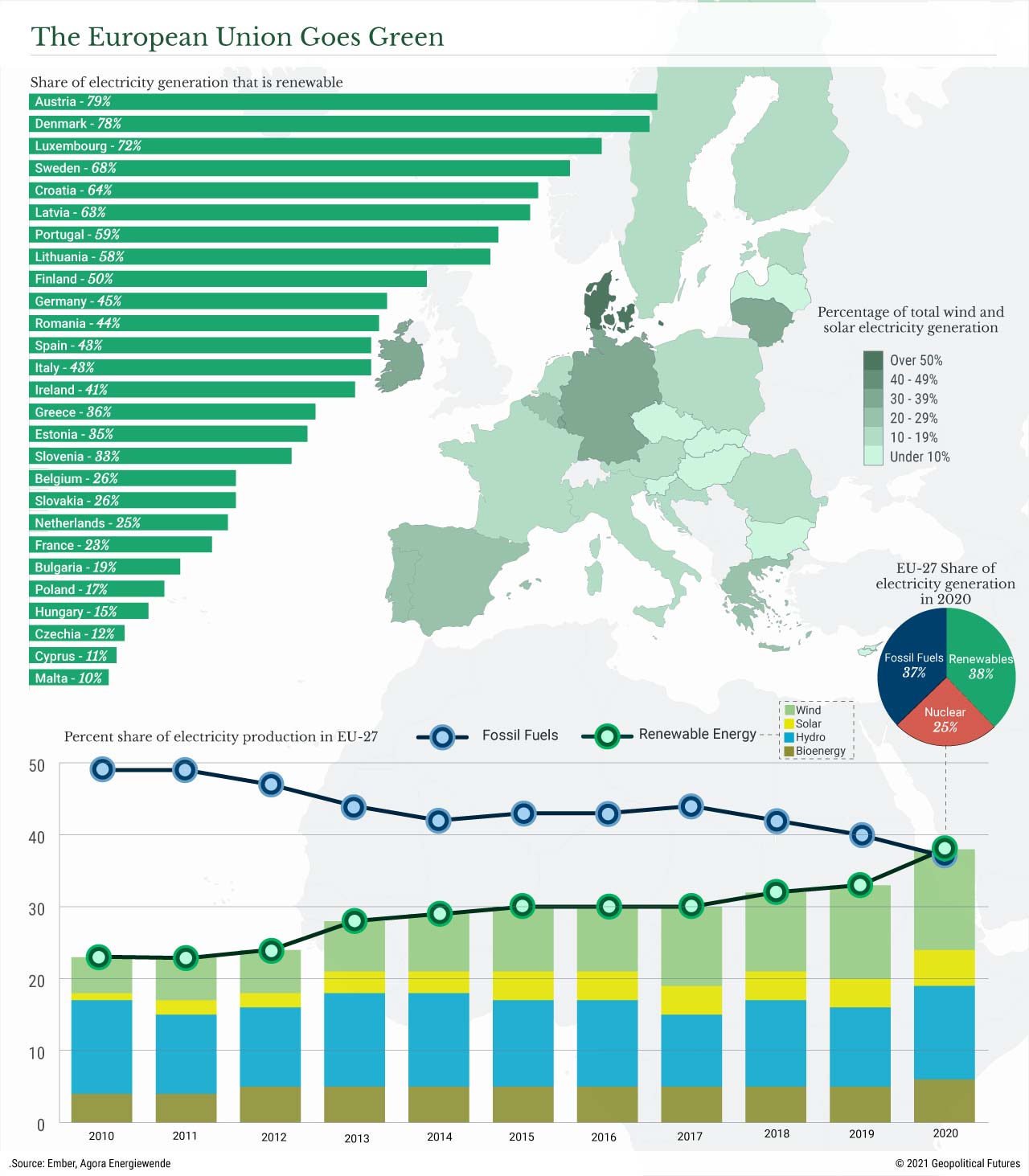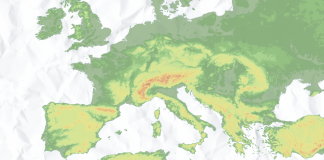The share of renewables in European energy production in 2020 increased to 38 percent, overtaking fossil fuels (which fell to 37 percent) for the first time. Europe has marked this as an important moment in its transition to clean energy after the signing of the European Green Deal, which lays out the EU’s path toward climate neutrality and radically reducing the level of greenhouse gas emissions by 2050. Overall, the transition to alternative sources of energy like solar and wind has been slow, but the growth in production of renewable energy sources has proved robust despite the pandemic.
Switching to renewables and reducing the use of fossil fuels is seen as the most effective way to reduce CO2 emissions and improve the condition of the climate. But the development of renewable energy also increases the energy security of each country, since it reduces their dependence on suppliers of traditional sources of energy. From the perspective of traditional energy suppliers, therefore, the green transition in Europe – one of the world’s largest consumers of fossil fuels – raises the risk of economic crisis and political instability.








